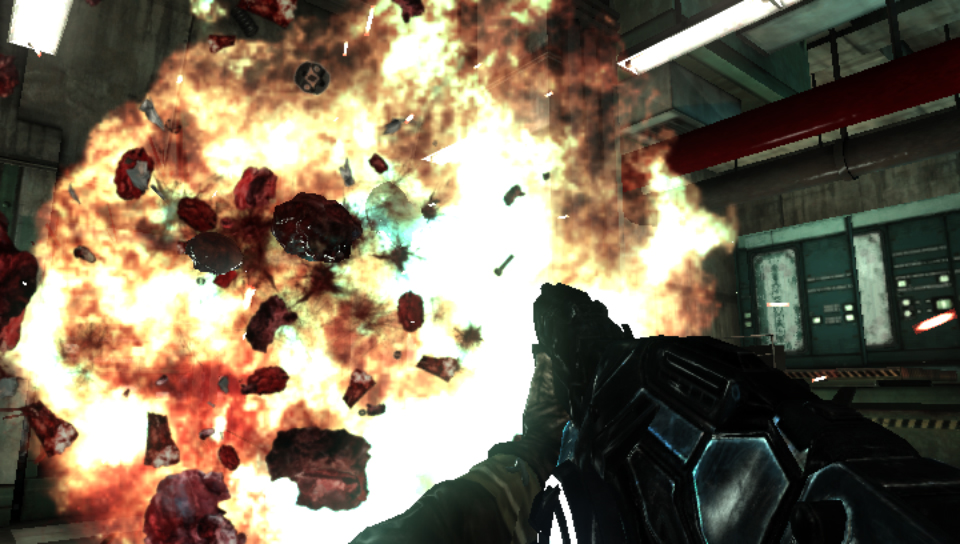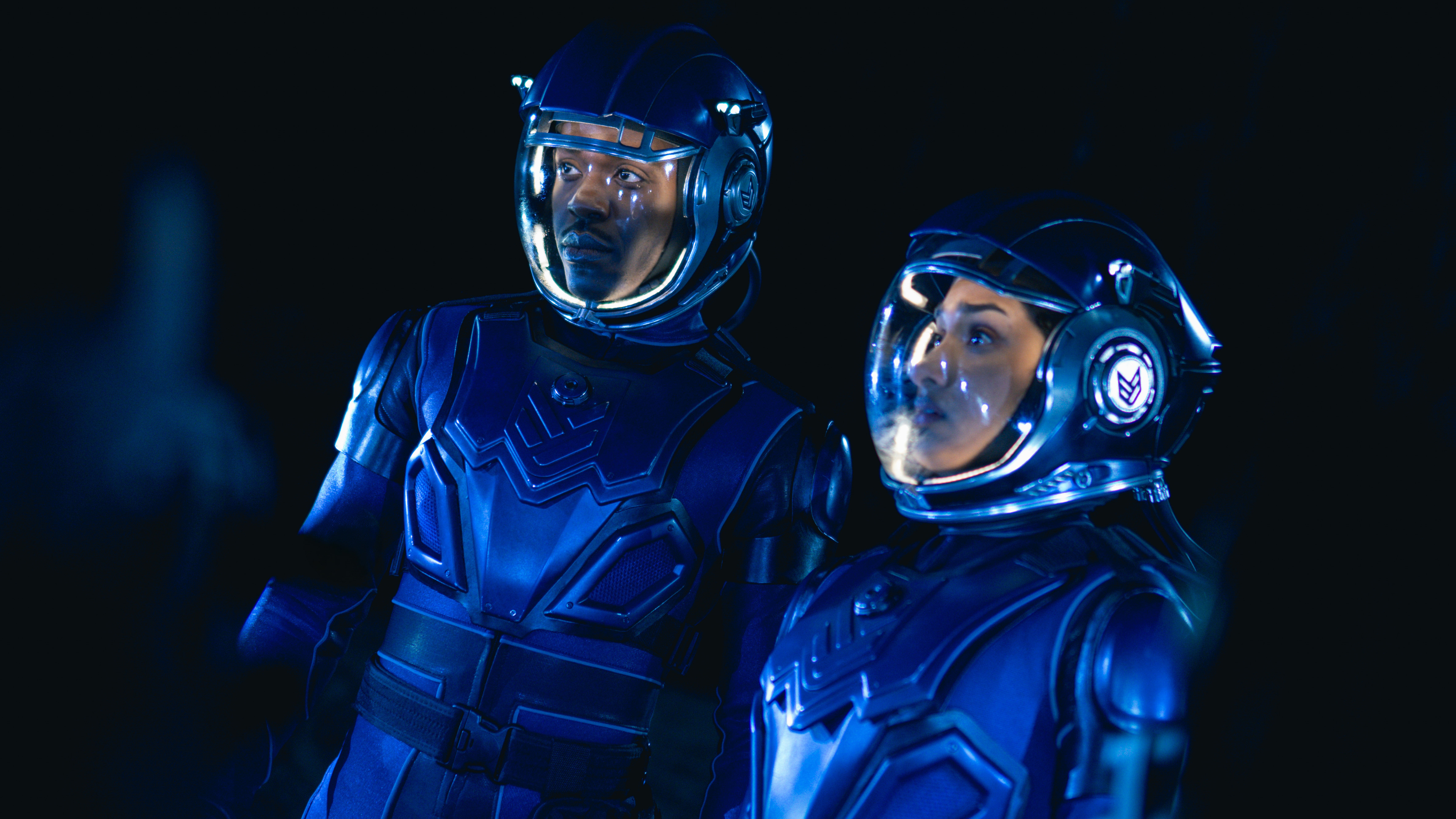Why you can trust GamesRadar+
The controls are either hit or miss on the Vita, and that’s a huge disappointment, considering the history of cut corners for first-person shooters on Sony handhelds. Don’t be deceived by the fact that the hardware has twice the sticks of the PSP. The dual analog sticks make the FPS manageable on the handheld, but it is far from the precision we’re used to from consoles. The short sticks don’t easily allow subtle movements, especially in the heat of battle. The cover system also felt clunky, since aiming over cover would auto-center on occasion (instead of on an intended target) or the pop-out function simply didn’t work on some walls.

Some of the touch controls don’t help much either. Secondary-fire on weapons requires using the touch screen, which can be a little troublesome in some cases. It never feels natural to take your hand off the control sticks to touch an enemy on-screen, but stringing an explosive bolt on a crossbow-shotgun was intuitive. When you need Riley to run -- activated by double tapping the Vita’s back touch sensor – it’s seldom responsive, forcing you to repeat the gesture till it works. The grenade and melee icons are placed on the right side of the screen for quick, one-touch convenience. When you want to quickly toss a grenade, tapping the icons work great, but the icons’ placement may also cause you to accidently swing Riley’s fireaxe while turning a corner or mistakenly toss a grenade during the more frantic multiplayer moments.
Multiplayer doesn’t stand out much; the fare isn’t much different than the last Resistance handheld game, Retribution, only minus two of that game’s multiplayer modes. You’ll only find three game types: Deathmatch, Team Deathmatch, and Survival played in small four player matches or large six to eight player matches. Survival isn’t too different from Retribution’s Assimilation mode, though it provides the only semblance of variety. All but one player start as humans against a single Chimera player. When a human dies, that player respawns on the Chimera team. If the humans survive for five minutes, they are the winners. The added strategy of working as a team and sticking together on the human side gave the mode a bit more depth than the traditional deathmatch modes.
Scoring kills and winning matches earn players experience points that unlock new weapons and bonuses. Newcomers will run into tough opposition from experienced players though, since higher level players will be equipped with much more devastating weapons while the beginners are stuck with the weaker starter guns.
Resistance: Burning Skies doesn’t offer the Resistance experience you’d expect, period. The weapon variety that defines the series is flaccid at best, the story is forgettable, and the multiplayer isn’t even as varied as the last handheld game in the series. It’s hard to even recommend this one to gamers who’ve spent the last six years popping Chimera skulls. Even if a few rounds of Survival are rather fun, there isn’t enough unique content here to attract many people, be they long-time Resistance fans or folks looking to get their FPS jones from the Vita. Resist the temptation.
More info
| Genre | Shooter |
| Description | Resistance: Burning Skies starts at the beginning of the Chimera invasion of North America. You play as Tom Riley, a New York City fire fighter who encounters the alien threat on the job, in the middle of a burning building. After leaving his wife and daughter during the initial chaos to help hold back the incoming Chimera, Riley helps the Resistance on his way to reunite with his family. |
| Platform | "PS Vita" |
| US censor rating | "Mature" |
| UK censor rating | "" |
| Release date | 1 January 1970 (US), 1 January 1970 (UK) |
Many years ago, Lorenzo Veloria was a Senior Editor here at GamesRadar+ helping to shape content strategy. Since then, Lorenzo has shifted his attention to Future Plc's broader video game portfolio, working as a Senior Brand Marketing Manager to oversee the development of advertising pitches and marketing strategies for the department. He might not have all that much time to write about games anymore, but he's still focused on making sure the latest and greatest end up in front of your eyes one way or another.



